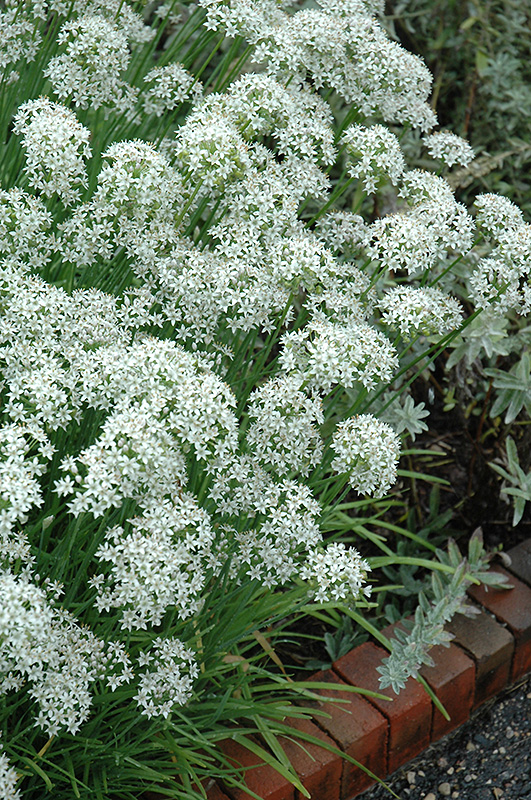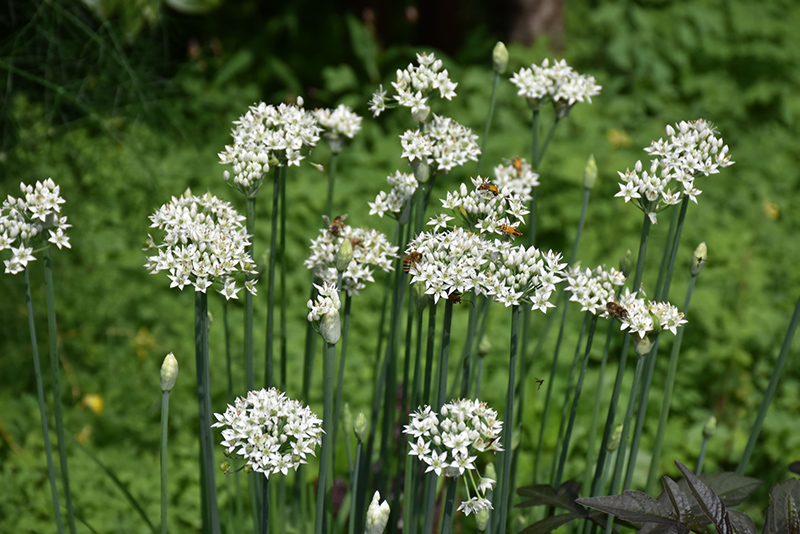Plant Search
Plant Height: 10 inches
Flower Height: 16 inches
Spread: 18 inches
Sunlight:
![]()
![]()
Hardiness Zone: 2b
Other Names: Chinese Chives;Flowering Onion
Description:
Culinary, ornamental. Flowers can be dried for winter arrangements. Flat, garlic flavored foliage. DO NOT ALLOW TO RESEED! This is an aggressive spreader.
Edible Qualities
Garlic Chives is a perennial herb that is typically grown for its edible qualities. The entire above-ground parts of the plant are edible, and are usually harvested from late spring to late summer. The edible parts have a savory taste.
The plant is most often used in the following ways:
- Fresh Eating
- Eating When Cooked/Prepared
- Cooking
- Drying
- Pickling
- Sauces
Features & Attributes
Garlic Chives has masses of beautiful clusters of lightly-scented white star-shaped flowers at the ends of the stems from mid summer to mid fall, which are most effective when planted in groupings. Its grassy leaves remain grayish green in color throughout the season. The green fruits are held in clusters .
This is an herbaceous perennial herb with an upright spreading habit of growth. Its relatively fine texture sets it apart from other garden plants with less refined foliage. This is a high maintenance plant that will require regular care and upkeep, and should only be pruned after flowering to avoid removing any of the current season's flowers. It is a good choice for attracting butterflies to your yard, but is not particularly attractive to deer who tend to leave it alone in favor of tastier treats. Gardeners should be aware of the following characteristic(s) that may warrant special consideration;
- Invasive
- Self-Seeding
Aside from its primary use as an edible, Garlic Chives is sutiable for the following landscape applications;
- General Garden Use
- Herb Gardens
Planting & Growing
Garlic Chives will grow to be about 10 inches tall at maturity extending to 16 inches tall with the flowers, with a spread of 18 inches. It grows at a fast rate, and under ideal conditions can be expected to live for approximately 8 years. As an herbaceous perennial, this plant will usually die back to the crown each winter, and will regrow from the base each spring. Be careful not to disturb the crown in late winter when it may not be readily seen!
This plant is typically grown in a designated herb garden. It does best in full sun to partial shade. It does best in average to evenly moist conditions, but will not tolerate standing water. It is not particular as to soil type or pH, and is able to handle environmental salt. It is highly tolerant of urban pollution and will even thrive in inner city environments. This species is not originally from North America. It can be propagated by division.
A NetPS Plant Finder tool



